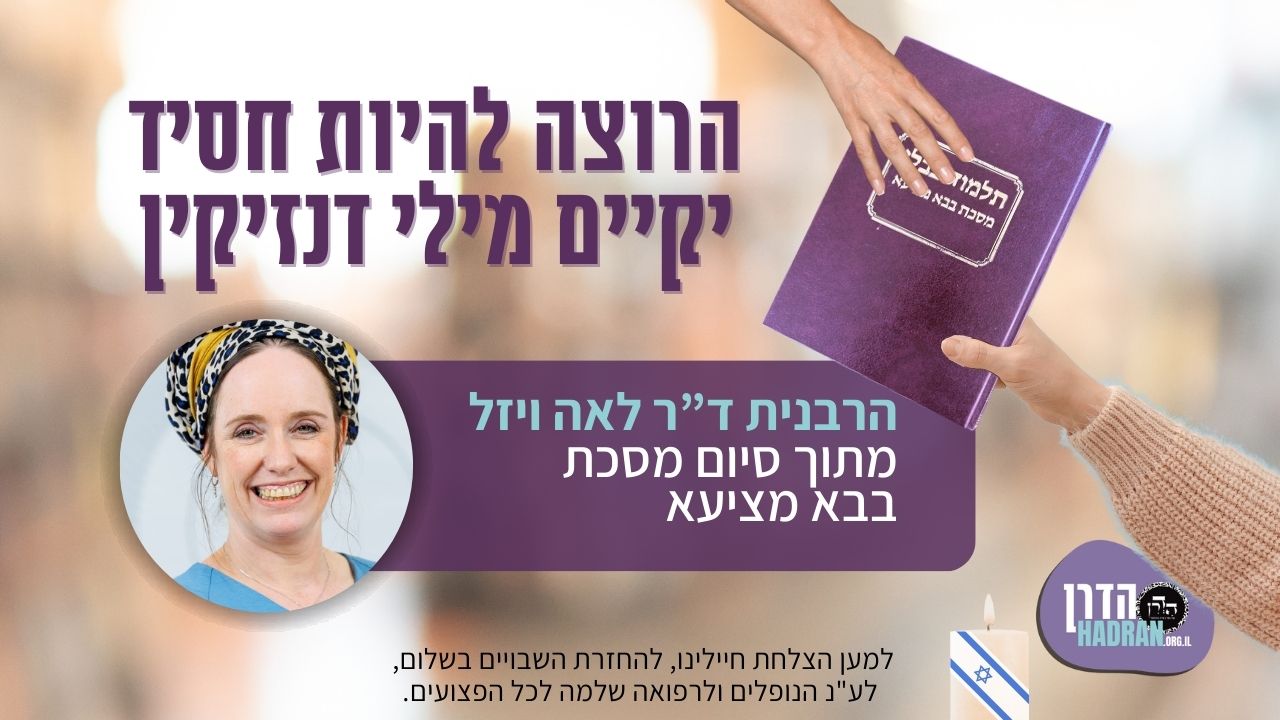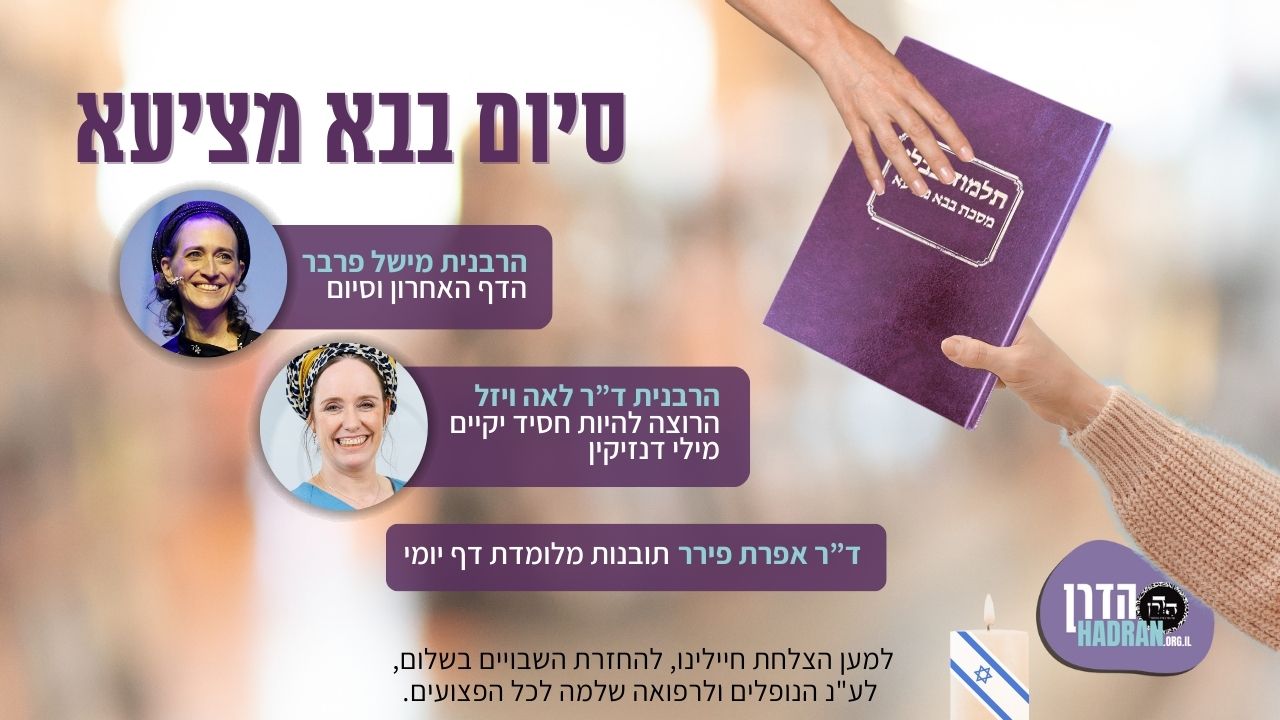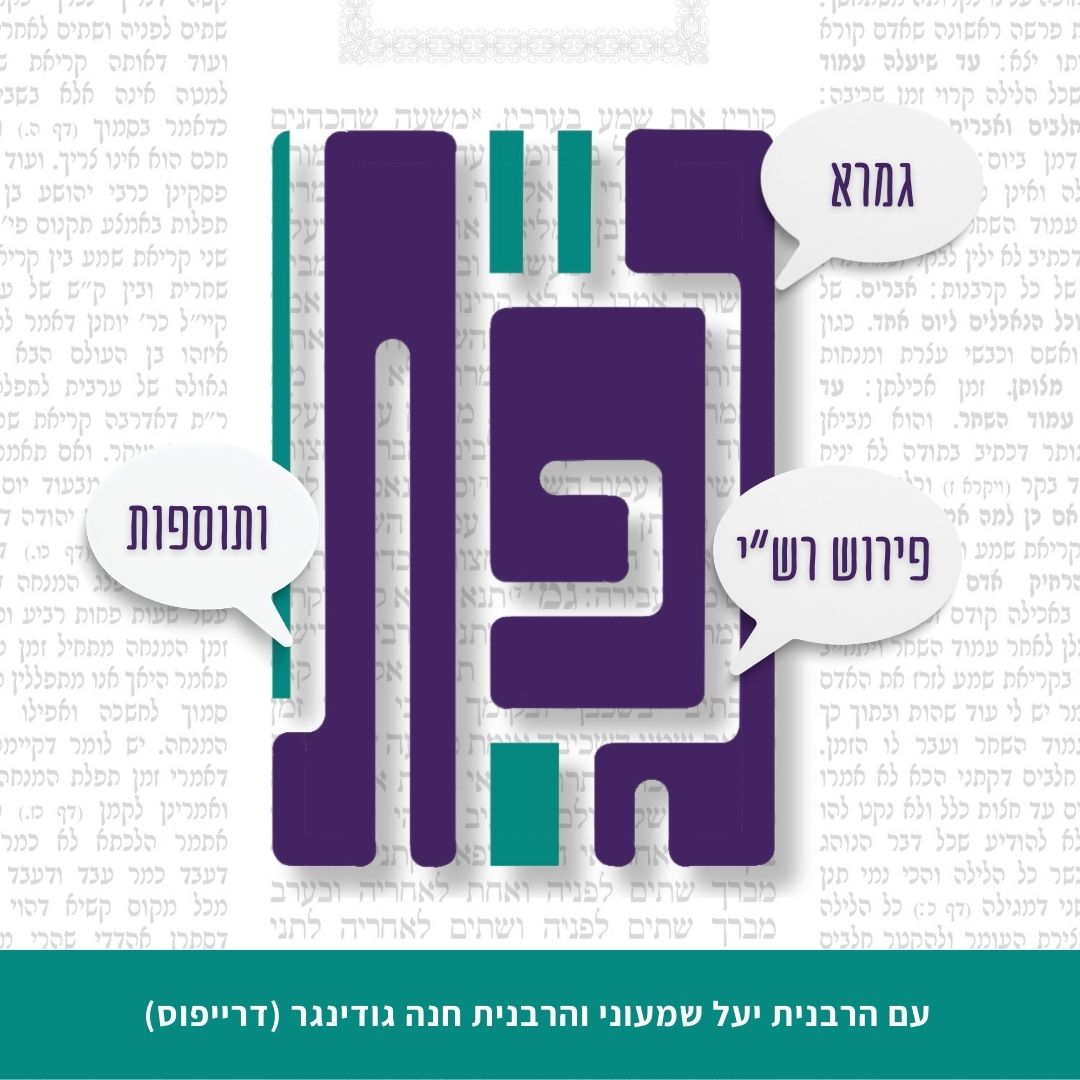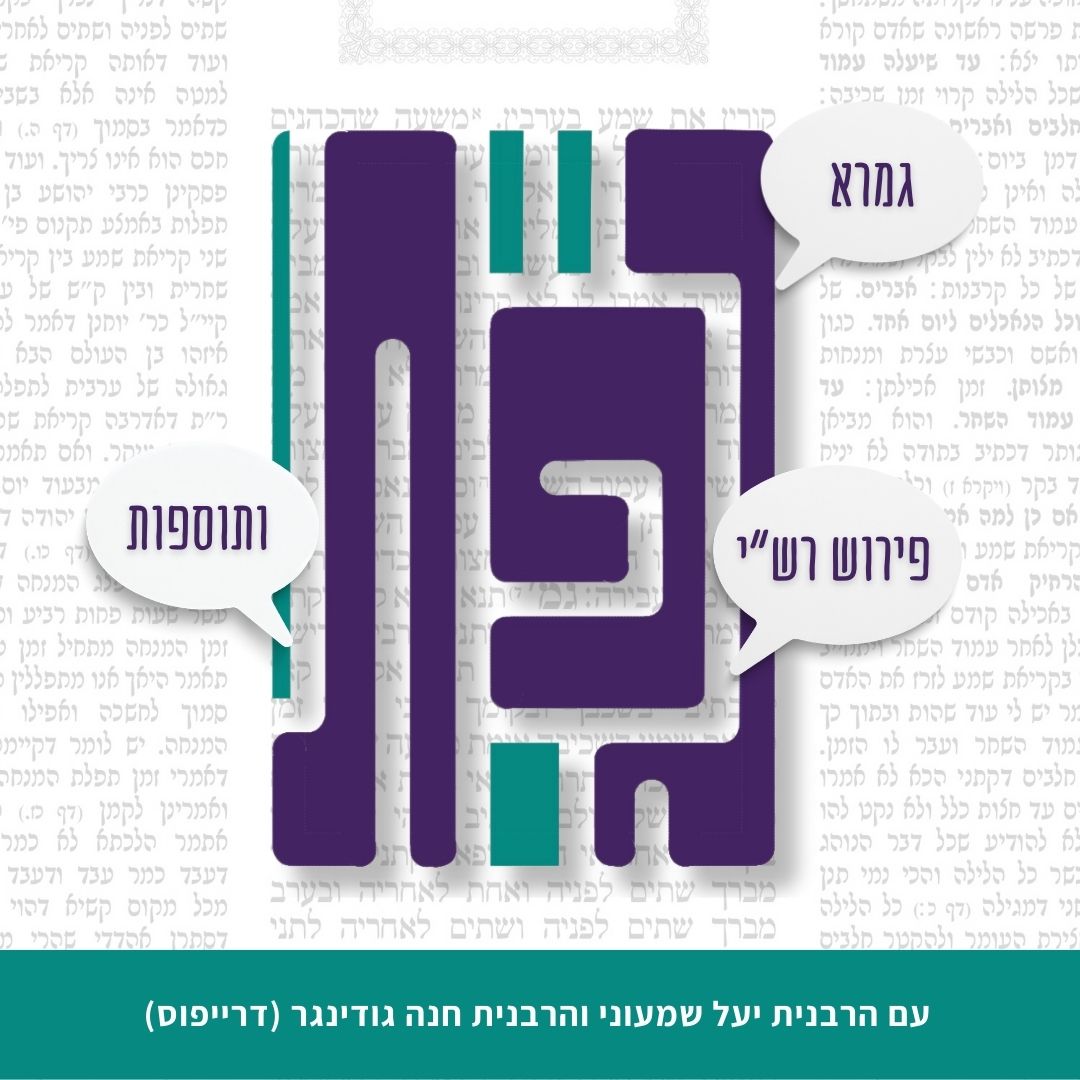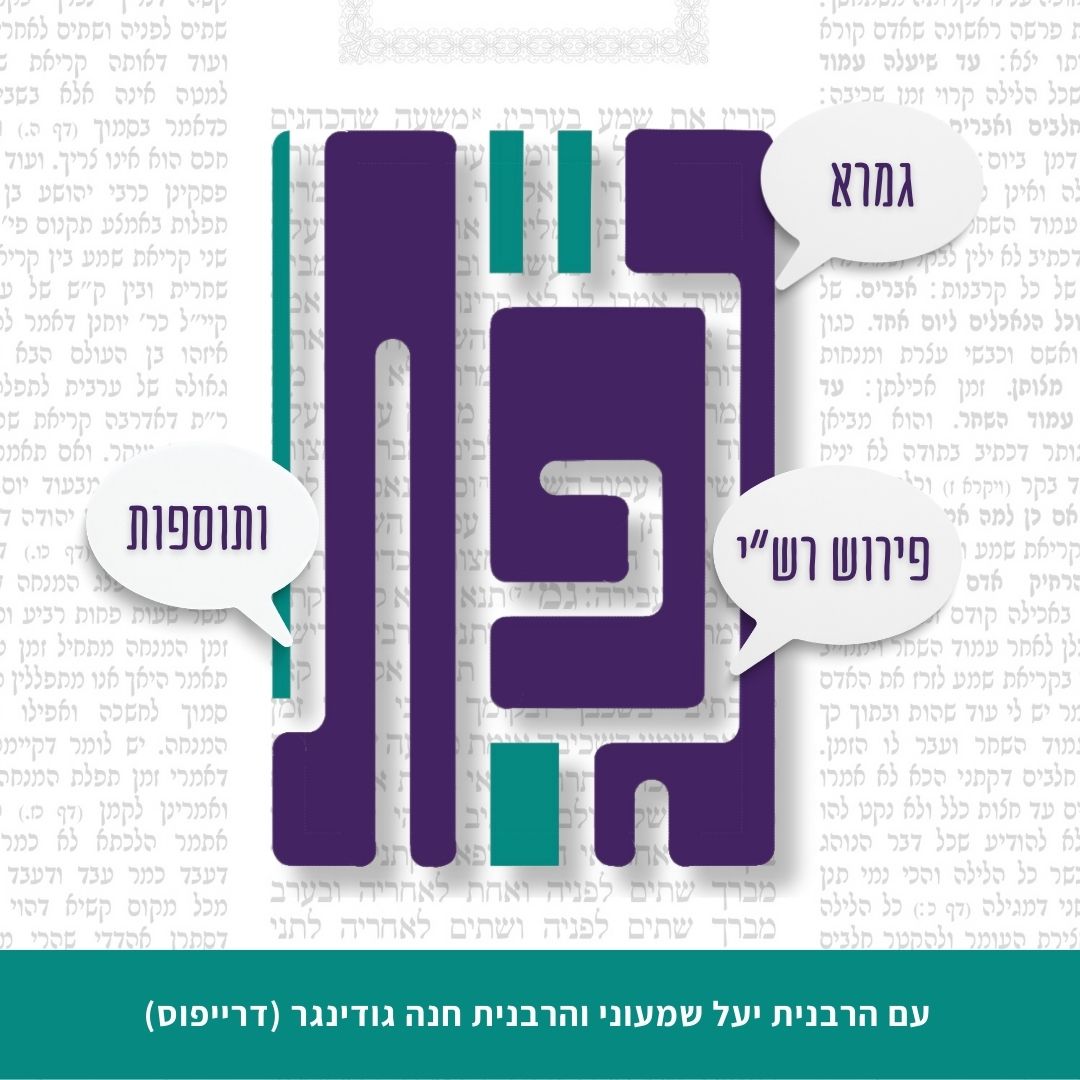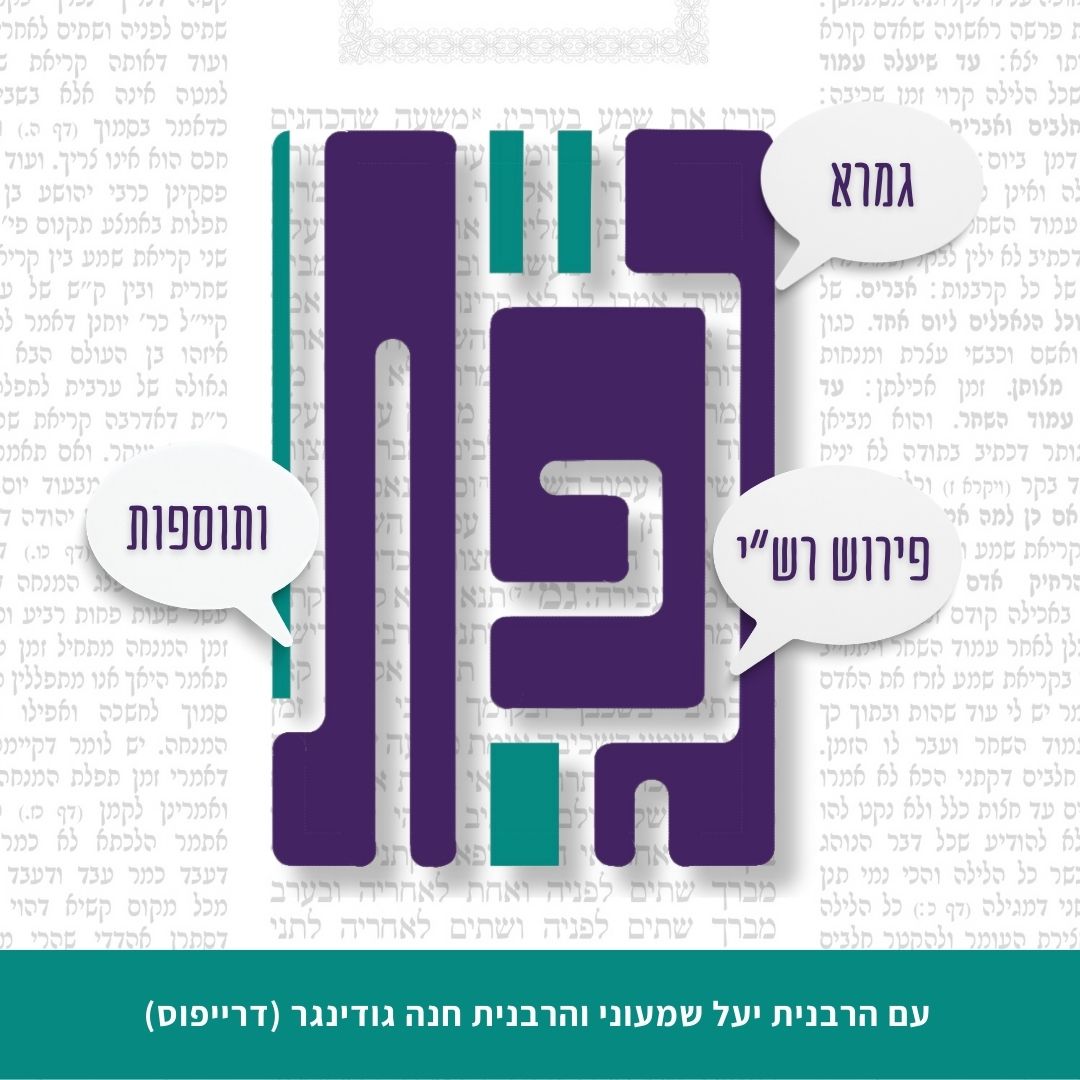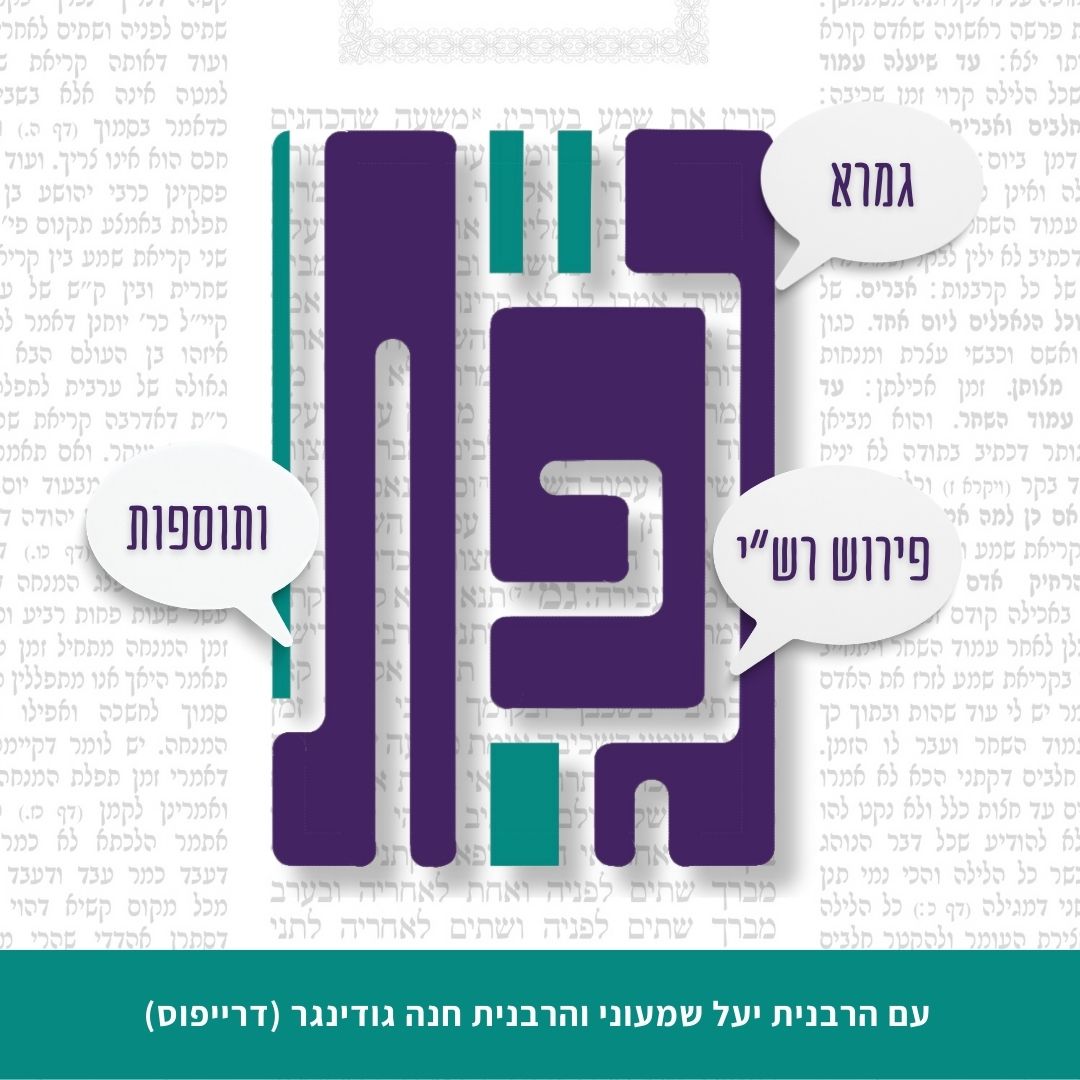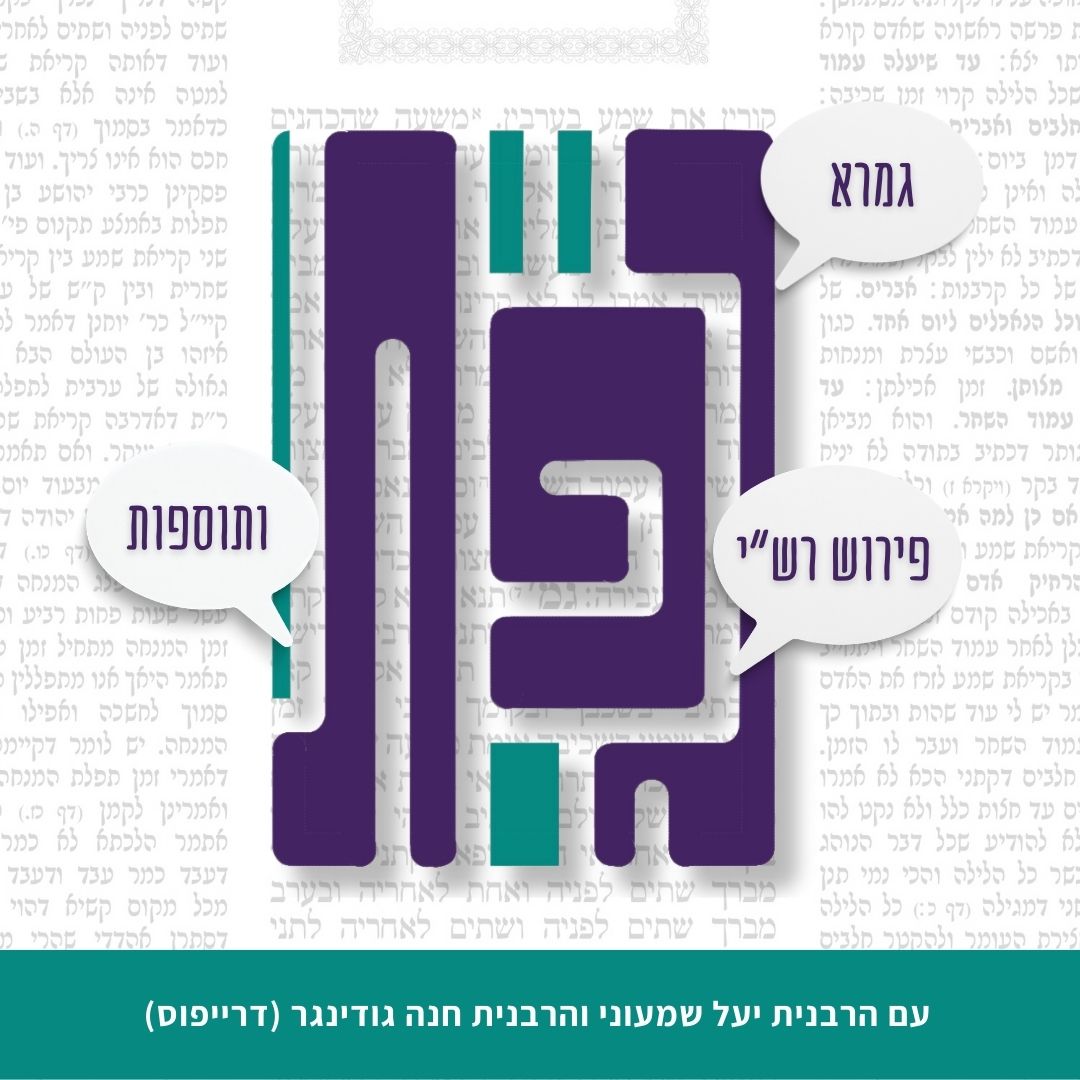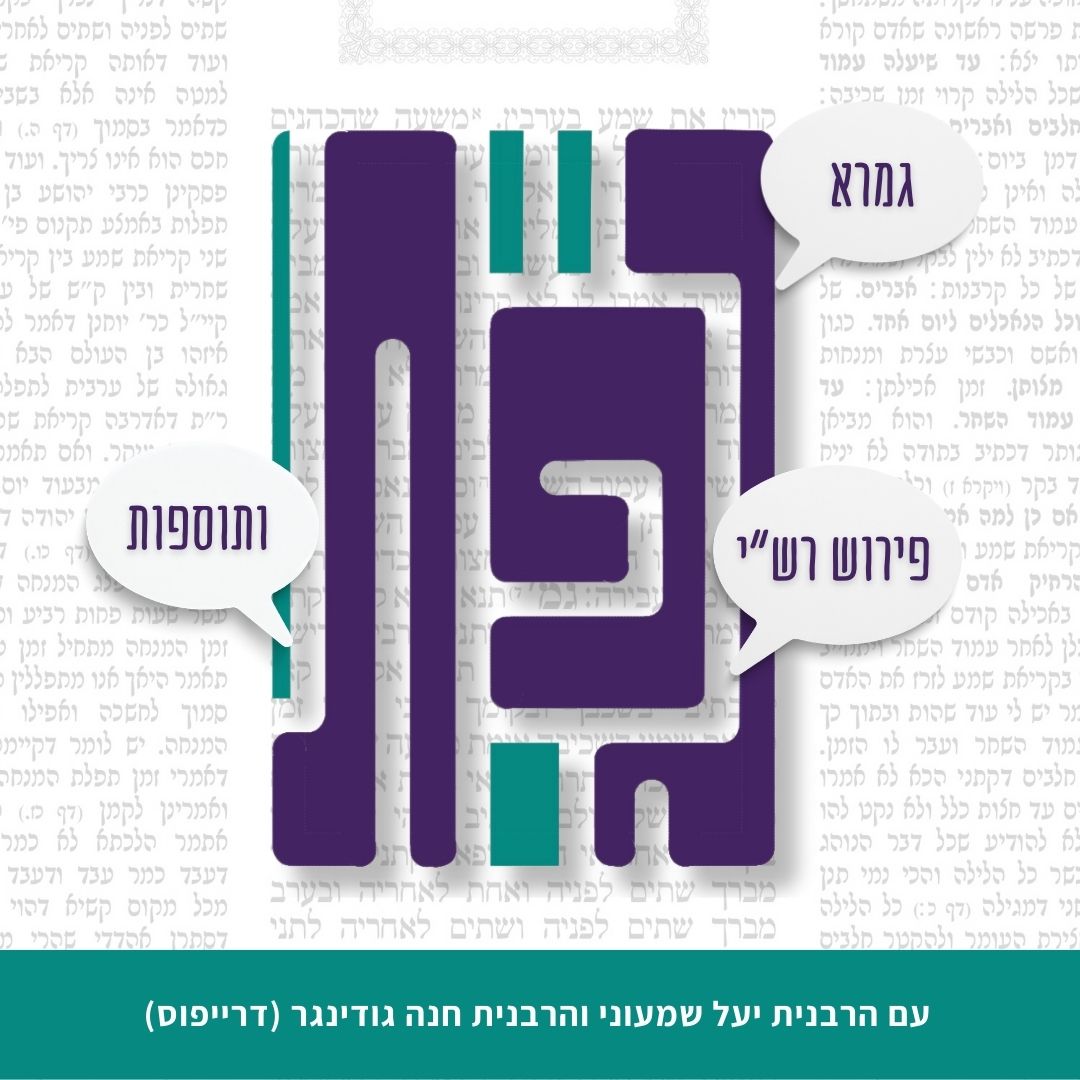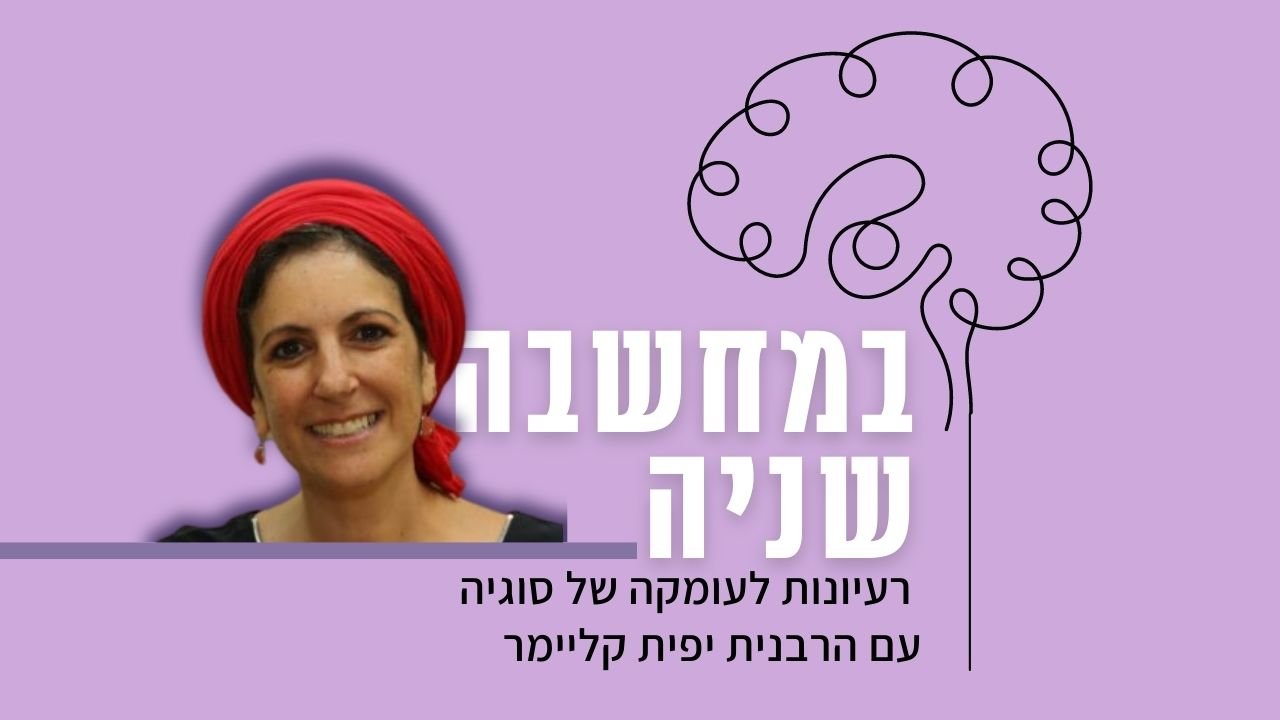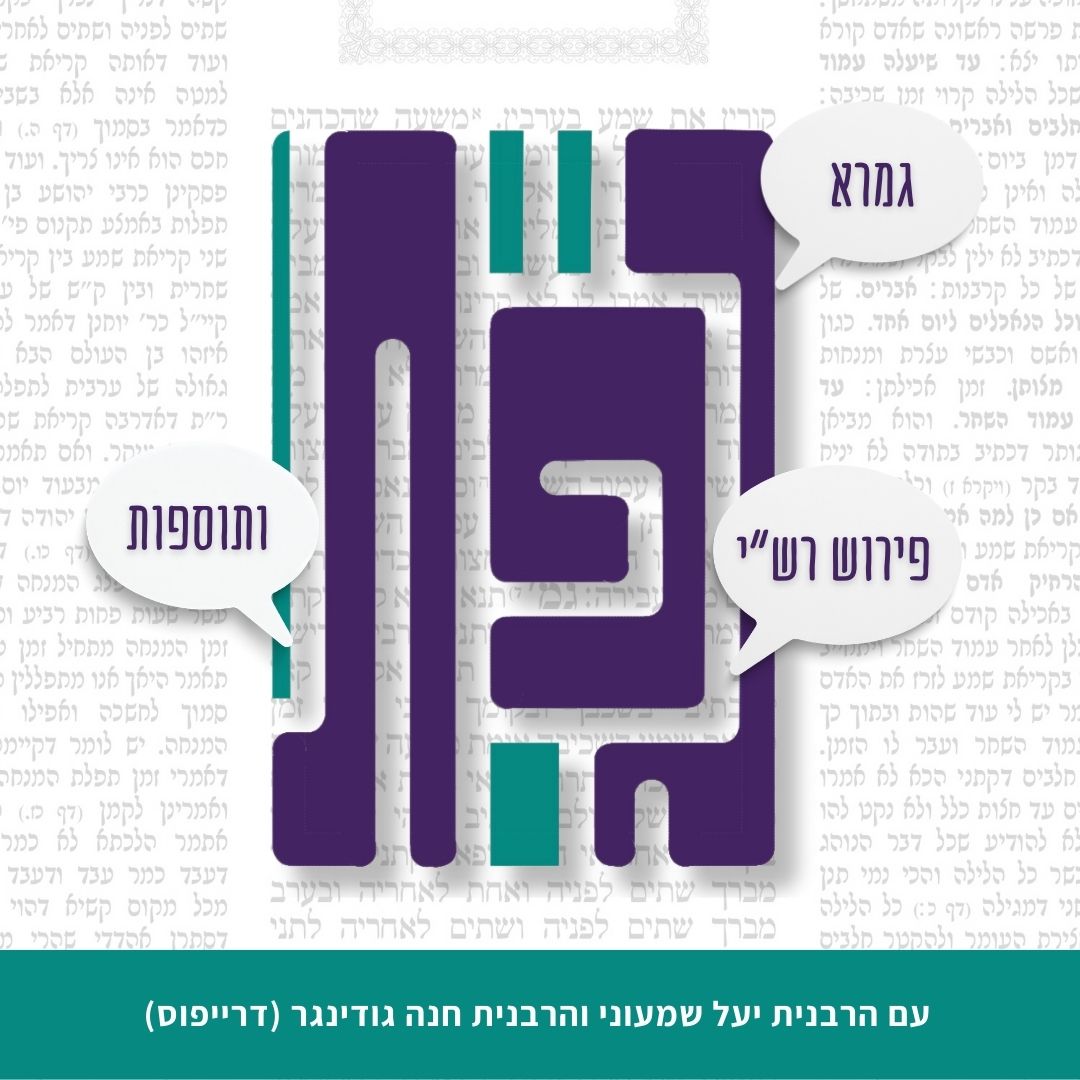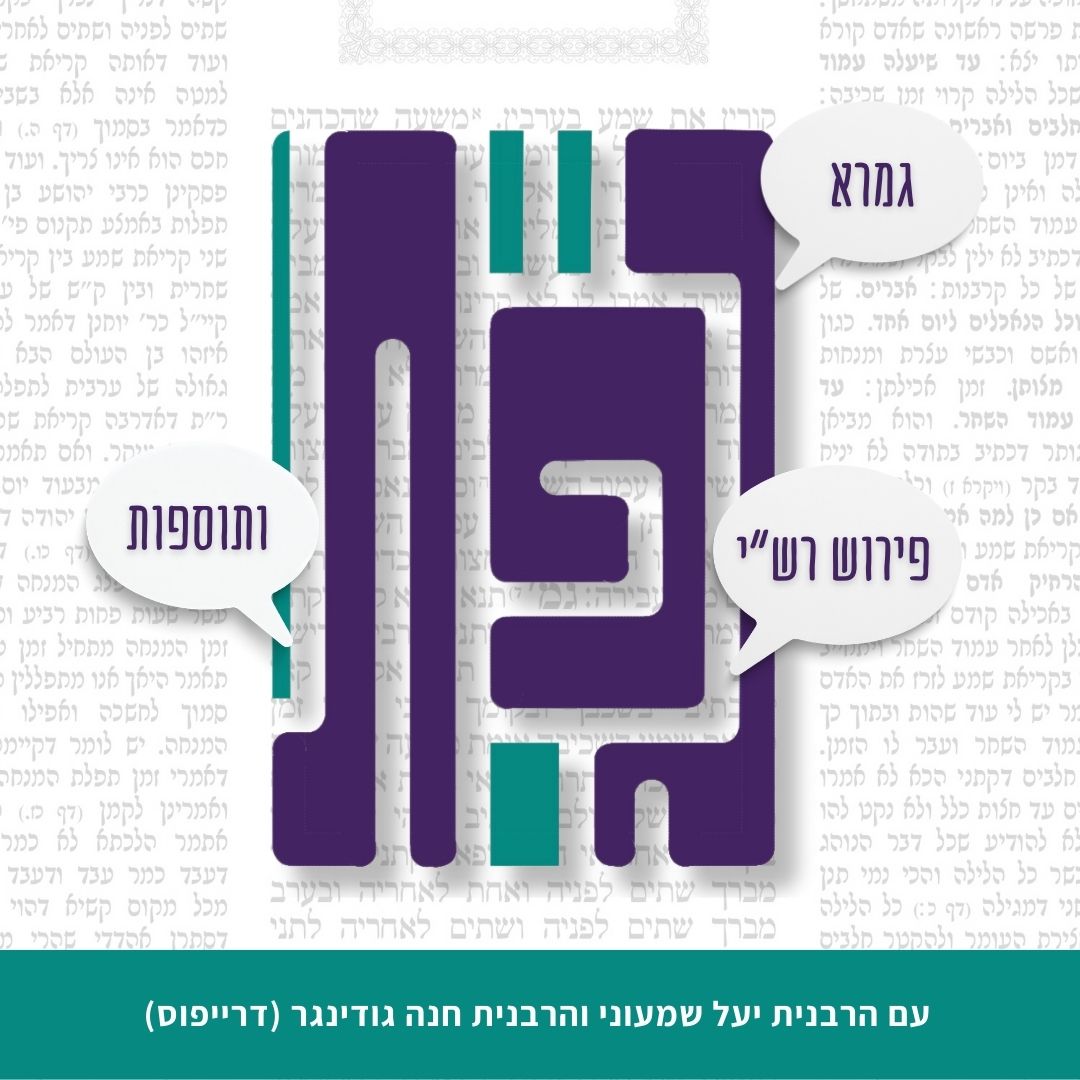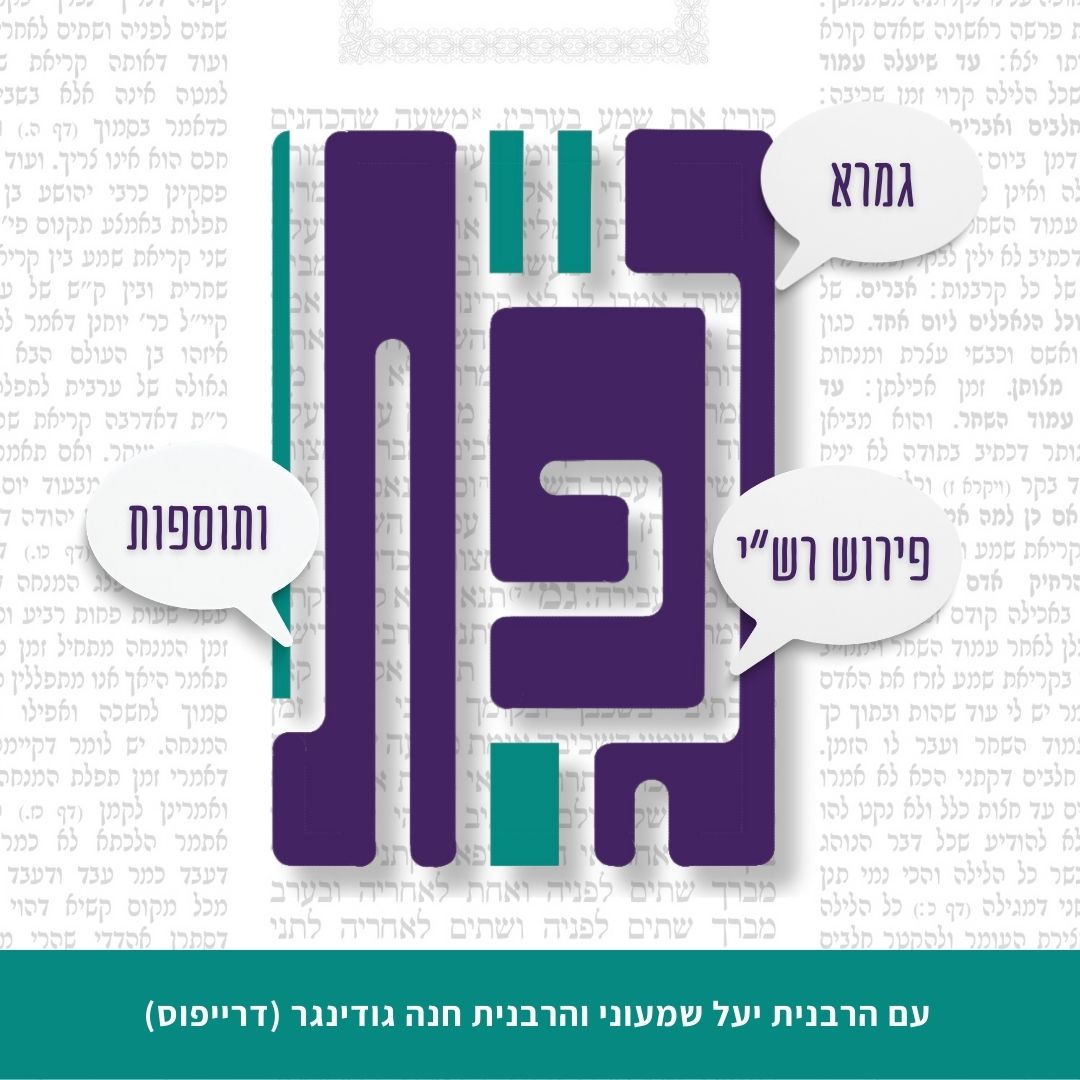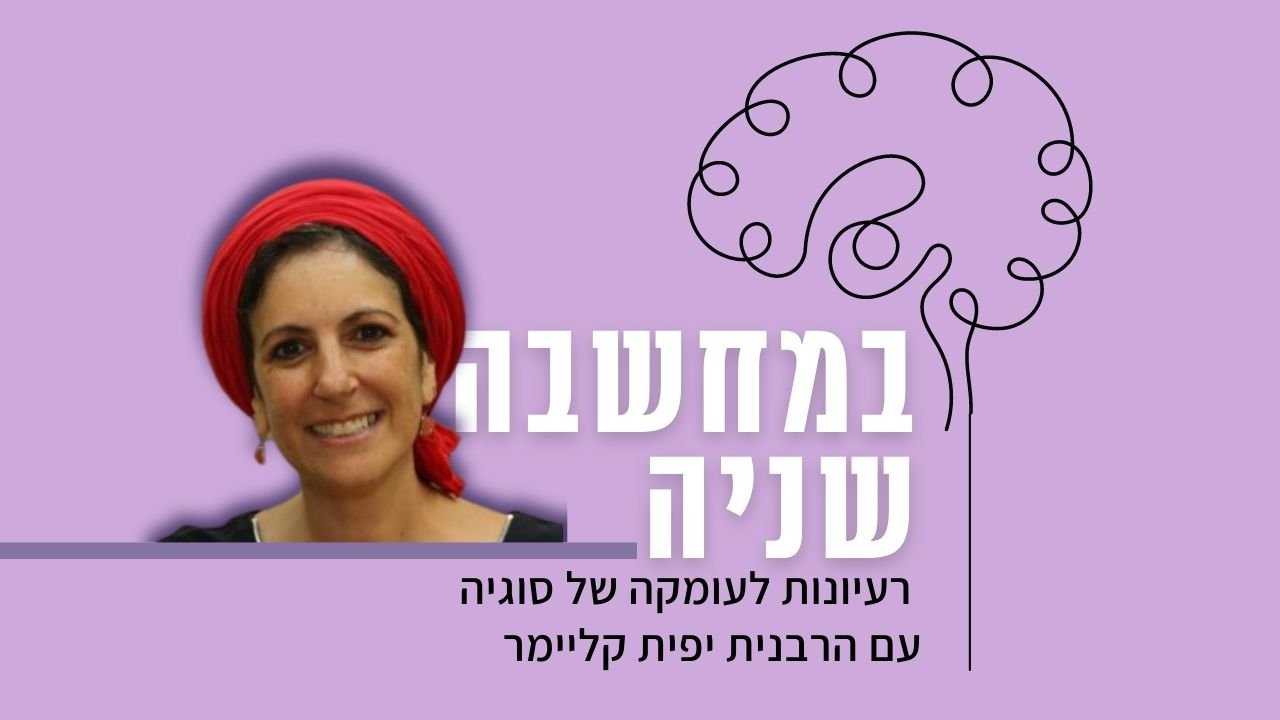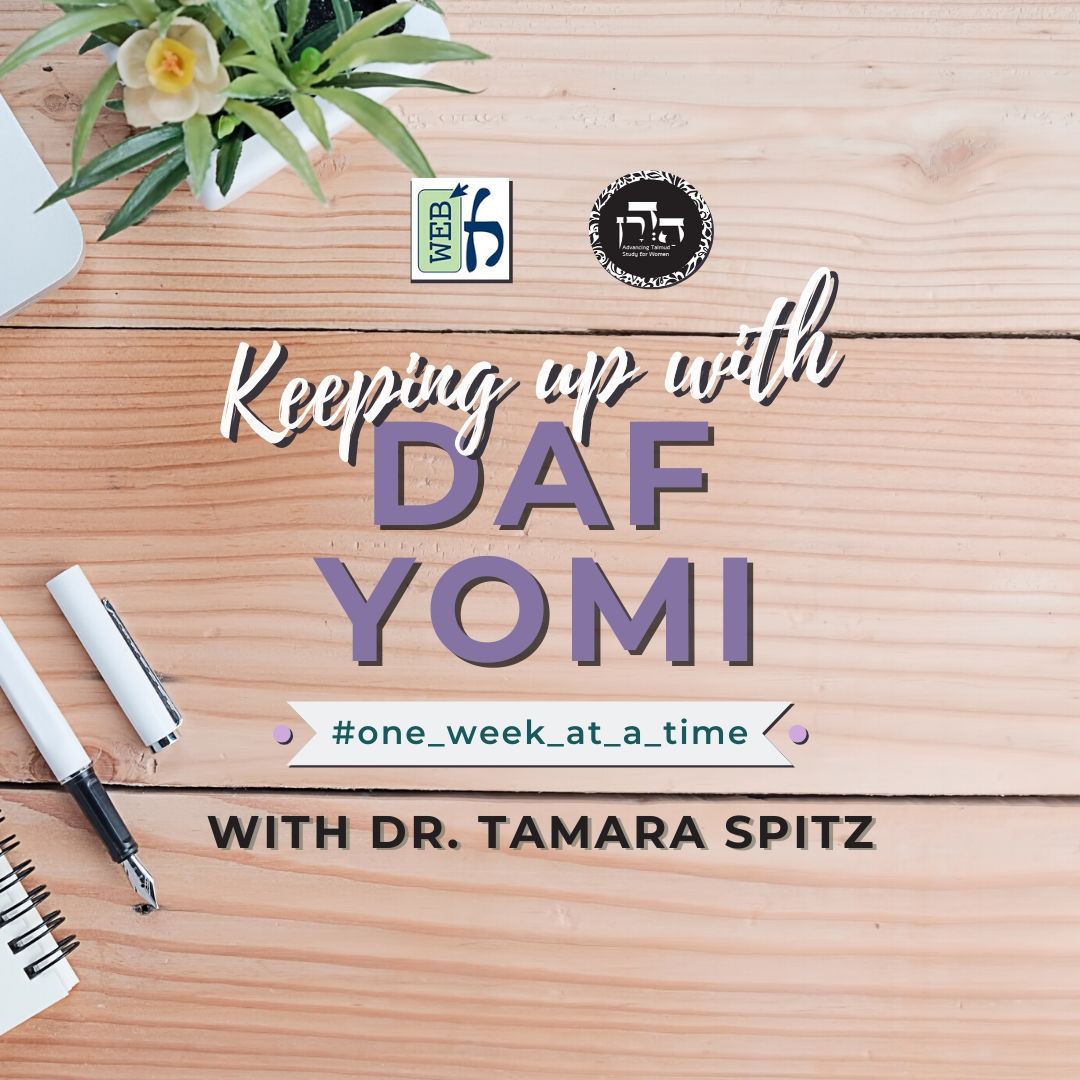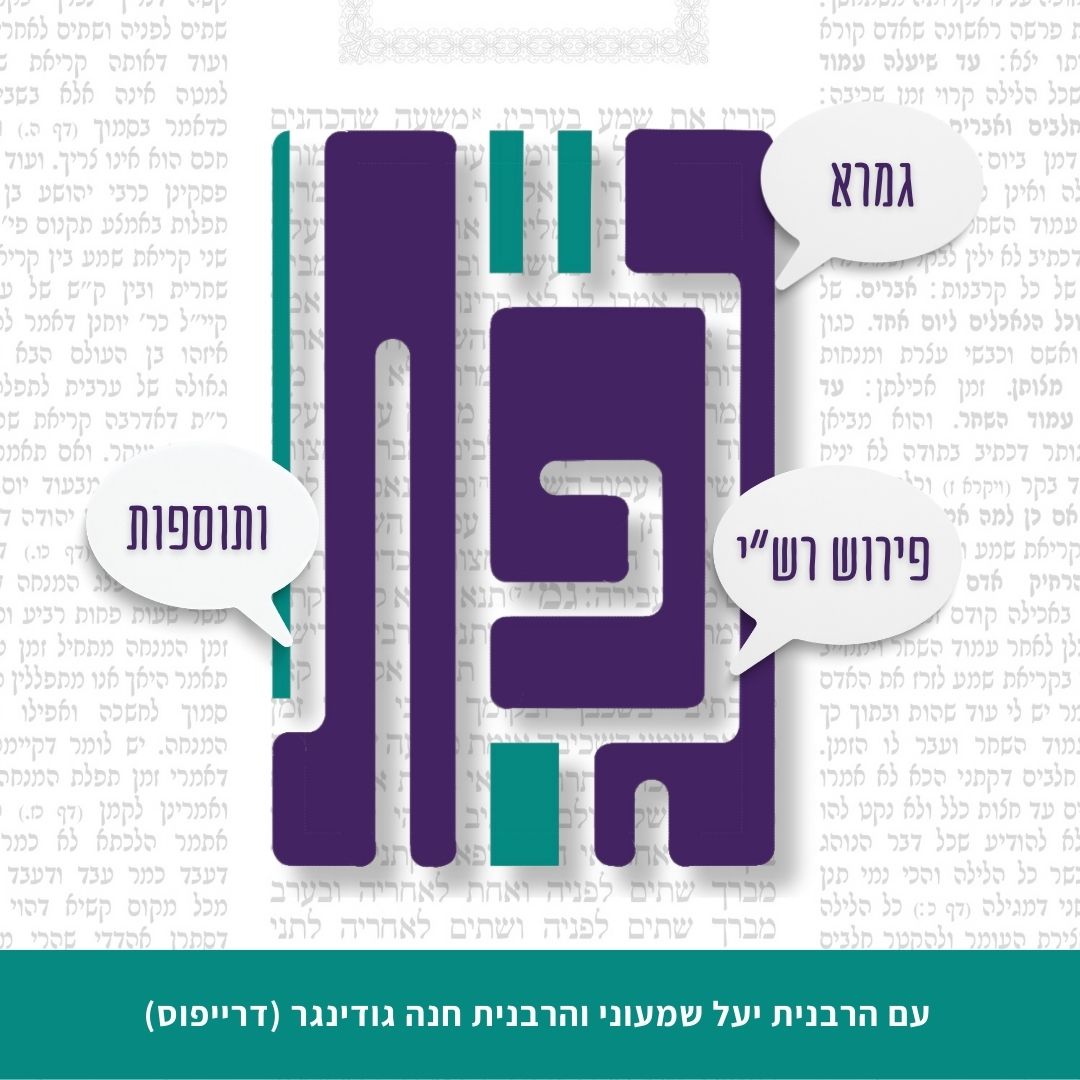בבא מציעא נא
מִשּׁוּם הָכִי חָזְרוּ.
it is due to this reason that they reverted to following the statement of the Rabbis, as the sellers were in any event able to renege at any point, while Rabbi Tarfon extended the period during which the buyers could renege on the transaction.
אֶלָּא אִי אָמְרַתְּ מוֹכֵר נָמֵי כְּלוֹקֵחַ דָּמֵי, מַאי נָפְקָא לְהוּ מִינַּהּ? כִּי הֵיכִי דְּעָבְדִי לַיהּ רַבָּנַן תַּקַּנְתָּא לְלוֹקֵחַ, הָכִי נָמֵי עָבְדִי לַיהּ רַבָּנַן תַּקַּנְתָּא לְמוֹכֵר!
But if you say that the legal status of a seller is also limited like that of a buyer in terms of the period of time during which he may renege, what difference is there to the merchants? Just as the Sages instituted an ordinance on behalf of a buyer enabling him to renege on the transaction, so too, the Sages instituted an ordinance on behalf of a seller. If the time afforded to the seller is equal to the time afforded to the buyer, the fact that Rabbi Tarfon extended this time would not be a reason for the merchants to revert to following the opinion of the Rabbis, as there is a benefit and a loss for the merchants according to both opinions.
תַּגָּרֵי לוֹד לָא שְׁכִיחַ דְּטָעוּ.
The Gemara answers: With regard to the merchants of Lod, it is rare for them to err, and therefore they preferred limiting the period during which the buyer could renege over extending the period during which they themselves could renege.
אוּשְׁפִּיזְכָנֵיהּ דְּרָמֵי בַּר חָמָא זַבֵּין חֲמָרָא וּטְעָה. אַשְׁכְּחֵיהּ דַּהֲוָה עֲצִיב, אֲמַר לֵיהּ: אַמַּאי עֲצִיבַתְּ? אֲמַר לֵיהּ: זַבֵּינִי חֲמָרָא וּטְעַאי. אֲמַר לֵיהּ: זִיל הֲדַר בָּךְ. אָמַר לֵיהּ: הָא שְׁהַאי לִי יוֹתֵר מִכְּדֵי שֶׁאַרְאֶה לַתַּגָּר אוֹ לִקְרוֹבִי! שַׁדְּרֵיהּ לְקַמֵּיהּ דְּרַב נַחְמָן, אֲמַר לֵיהּ לֹא שָׁנוּ אֶלָּא לוֹקֵחַ, אֲבָל מוֹכֵר – לְעוֹלָם חוֹזֵר.
The Gemara relates: The landlord of Rami bar Ḥama sold a donkey and erred in fixing its price. Rami bar Ḥama encountered him and noticed that he was sad. Rami bar Ḥama said to him: Why are you sad? The landlord said to him: I sold a donkey and I erred in fixing its price. Rami bar Ḥama said to him: Go and renege on the transaction. The landlord said to him: I have waited more than the period of time that it takes for me to show the merchandise to a merchant or to my relative. Rami bar Ḥama sent the landlord before Rav Naḥman for a ruling and Rav Naḥman said to him: The Sages taught this halakha only with regard to a buyer, but a seller may always renege on a transaction.
מַאי טַעְמָא? לוֹקֵחַ מִקָּחוֹ בְּיָדוֹ, כֹּל הֵיכָא דְּאָזֵיל מַחְוִי לֵיהּ וְאָמְרִי לֵיהּ אִי טְעָה, אִי לָא טְעָה. מוֹכֵר דְּלָא נָקֵט מִקָּחֵיהּ בִּידֵיהּ עַד דְּמִיתְרְמֵי לֵיהּ זְבִינְתָּא כִּזְבִינְתֵּיהּ, וְיָדַע אִי טְעָה וְאִי לָא טְעָה.
The Gemara asks: What is the reason for this? The Gemara explains: A buyer has his merchandise in his possession; therefore, anywhere that he goes he shows it to those familiar with the market price and they tell him whether he erred or whether he did not err. A seller, who does not have his merchandise in his possession, can ascertain the market price only when merchandise like his merchandise happens to come before him, and only then will he know whether he erred or whether he did not err.
הָהוּא גַּבְרָא דַּהֲוָה נָקֵט וַרְשְׁכֵי לְזַבּוֹנֵי, קָרֵי שִׁיתָּא וְשָׁוְיָא חַמְשָׁא, וְאִי הֲווֹ יָהֲבִי לֵיהּ חַמְשָׁא וּפַלְגָא הֲוָה שָׁקֵיל. אֲתָא הָהוּא גַּבְרָא וְאָמַר: אִי יָהֵיבְנָא לֵיהּ חַמְשָׁא וּפַלְגָא הָוְיָא מְחִילָה. אֶתֵּן לֵיהּ שִׁיתָּא וְאֶתְבְּעֵיהּ לְדִינָא. אֲתָא לְקַמֵּיהּ דְּרָבָא, אֲמַר לֵיהּ: לֹא שָׁנוּ אֶלָּא בְּלוֹקֵחַ מִן הַתַּגָּר, אֲבָל בְּלוֹקֵחַ מִבַּעַל הַבַּיִת – אֵין לוֹ עָלָיו אוֹנָאָה.
§ The Gemara relates: There was a certain man who had silk strips [varshekhei] to sell. He announced that he was selling them for six ma’a, and they were worth five ma’a, and if they would give him five and a half ma’a, he would take it and sell the silk. This man, i.e., a potential buyer, came and said to himself: If I give him five and a half ma’a, it is a case of a waiver, and I will not be entitled to recover the difference. I will give him six ma’a and claim from him by law the return of the sum gained by the exploitation. He did so. The case came before Rava, who said to him: The Sages taught this halakha of exploitation only with regard to one who buys merchandise from a merchant, but one who buys merchandise from a regular homeowner does not have a claim of exploitation against him.
הָהוּא גַּבְרָא דַּהֲוָה נָקֵיט כִּיפֵּי לְזַבּוֹנֵי קָרֵי שִׁתִּין וְשָׁוֵי חַמְשִׁין, וְאִי הֲווֹ יָהֲבִי לֵיהּ חַמְשִׁין וְחַמְשָׁא הֲוָה שָׁקֵיל. אֲתָא הָהוּא גַּבְרָא וְאָמַר: אִי יָהֵיבְנָא לֵיהּ חַמְשִׁין וְחַמְשָׁא הָוְיָא מְחִילָה, אֶתֵּן לֵיהּ שִׁיתִּין וְאֶתְבְּעֵיהּ לְדִינָא. אֲתָא לְקַמֵּיהּ דְּרַב חִסְדָּא. אֲמַר לֵיהּ: לֹא שָׁנוּ אֶלָּא בְּלוֹקֵחַ מִן הַתַּגָּר, אֲבָל בְּלוֹקֵחַ מִן בַּעַל הַבַּיִת – אֵין לוֹ עָלָיו אוֹנָאָה.
The Gemara relates a similar incident: There was a certain man who was holding jewelry to sell. He announced that he was selling it for sixty ma’a, and it was worth fifty ma’a, and if they would give him fifty-five ma’a, he would take it and sell the jewels. This man, i.e., a potential buyer, came and said to himself: If I give him fifty-five ma’a, it is a case of a waiver, and I will not be entitled to recover the difference. I will give him sixty ma’a and claim from him by law the return of the sum gained by the exploitation. He did so. The case came before Rav Ḥisda, who said to him: The Sages taught this halakha of exploitation only with regard to one who buys merchandise from a merchant, but one who buys merchandise from a regular homeowner does not have a claim of exploitation against him.
אֲמַר לֵיהּ רַב דִּימִי: יִשַׁר. וְכֵן אָמַר רַבִּי אֶלְעָזָר: יִשַׁר. וְהָא אֲנַן תְּנַן: כְּשֵׁם שֶׁאוֹנָאָה לְהֶדְיוֹט כָּךְ אוֹנָאָה לַתַּגָּר. מַאן הֶדְיוֹט, לָאו בַּעַל הַבַּיִת? אָמַר רַב חִסְדָּא: בְּצַדְרְיָיתָא. אֲבָל מָאנֵי תַשְׁמִישְׁתֵּיהּ, דְּיַקִּירִי עֲלֵיהּ, לָא מְזַבֵּין לְהוּ אִי לָאו בִּדְמֵי יַתִּירֵי.
Rav Dimi said to Rav Ḥisda: The ruling is correct. And likewise, Rabbi Elazar said: The ruling is correct. The Gemara asks: But didn’t we learn in the mishna that follows: Just as the halakhot of exploitation apply to a layman [lahedyot], so do the halakhot of exploitation apply to a merchant? Who is the layman to whom the mishna is referring? Is he not a regular homeowner as opposed to a merchant? Rav Ḥisda said: That mishna is referring to simple linen garments [tzadriyyata], which the homeowner crafts expressly for sale. But with regard to vessels and garments designed for the personal use of a homeowner, which are important to him, he sells them only to receive extra money, as people are generally hesitant to part with their belongings. Therefore, when purchasing an item from a homeowner, a buyer must consider the likelihood that his asking price is greater than the item’s actual worth.
מַתְנִי׳ אֶחָד הַלּוֹקֵחַ וְאֶחָד הַמּוֹכֵר יֵשׁ לָהֶן אוֹנָאָה. כְּשֵׁם שֶׁאוֹנָאָה לַהֶדְיוֹט כָּךְ אוֹנָאָה לַתַּגָּר. רַבִּי יְהוּדָה אוֹמֵר: אֵין אוֹנָאָה לַתַּגָּר. מִי שֶׁהוּטַּל עָלָיו – יָדוֹ עַל הָעֶלְיוֹנָה, רָצָה אוֹמֵר לוֹ: תֵּן לִי מְעוֹתַי, אוֹ תֵּן לִי מַה שֶּׁאֹנֵיתַנִי.
MISHNA: Both the buyer and the seller are subject to the halakhot of exploitation. Just as the halakhot of exploitation apply to a layman, so do the halakhot of exploitation apply to a merchant. Rabbi Yehuda says: There is no exploitation for a merchant, as he is an expert in the market price of merchandise. The one upon whom the exploitation was imposed has the advantage. If he wishes, he can say to the other: Give me back my money and nullify the transaction, or he can say: Give me back the sum that you gained by exploiting me.
גְּמָ׳ מְנָהָנֵי מִילֵּי? דְּתָנוּ רַבָּנַן: ״וְכִי תִמְכְּרוּ מִמְכָּר לַעֲמִיתֶךָ … אַל תּוֹנוּ״ – אֵין לִי אֶלָּא שֶׁנִּתְאַנָּה לוֹקֵחַ, נִתְאַנָּה מוֹכֵר מִנַּיִן? תַּלְמוּד לוֹמַר: ״אוֹ קָנֹה … אַל תּוֹנוּ״.
GEMARA: The Gemara asks: From where are these matters derived, that both the buyer and the seller are subject to the halakha of exploitation? As the Sages taught concerning the verse: “And if you sell to your colleague an item that is sold, or acquire from your colleague’s hand, you shall not exploit his brother” (Leviticus 25:14). I have derived only a case where a buyer was exploited. From where do I derive that the halakha is the same in a case where the seller was exploited? The same verse states: “Or acquire from your colleague’s hand, you shall not exploit his brother.”
וְאִיצְטְרִיךְ לְמִכְתַּב לוֹקֵחַ וְאִיצְטְרִיךְ לְמִכְתַּב מוֹכֵר, דְּאִי כְּתַב רַחֲמָנָא מוֹכֵר – מִשּׁוּם דְּקִים לֵיהּ בִּזְבִינְתֵּיהּ, אֲבָל לוֹקֵחַ – דְּלָא קִים לֵיהּ בִּזְבִינְתֵּיהּ, אֵימָא לָא אַזְהֲרֵיהּ רַחֲמָנָא בְּ״לֹא תּוֹנוּ״.
The Gemara comments: And it was necessary to write the prohibition against exploitation with regard to a buyer, and it was necessary to write the prohibition against exploitation with regard to a seller. As, had the Merciful One written this prohibition only with regard to a seller, one would conclude that it is prohibited for him because he is certain of the value of his merchandise, but with regard to a buyer, who is not certain of the value of the seller’s merchandise, say that the Merciful One did not render it prohibited for him to engage in exploitation with the verse “You shall not exploit.”
וְאִי כְּתַב רַחֲמָנָא לוֹקֵחַ – מִשּׁוּם דְּקָא קָנֵי, דְּאָמְרִי אִינָשֵׁי: זְבַנְתְּ קְנֵית. אֲבָל מוֹכֵר דְּאֹבוֹדֵי קָא מוֹבֵיד, דְּאָמְרִי אִינָשֵׁי: זַבֵּין אוֹבֵיד, אֵימָא לָא אַזְהֲרֵיהּ רַחֲמָנָא בְּ״לֹא תּוֹנוּ״, צְרִיכָא.
And had the Merciful One written this prohibition only with regard to a buyer, one would conclude that it is prohibited for him because he acquires the item and he benefits from his purchase, as people say: If you purchased an item, you acquired a durable item for yourself. But with regard to a seller, who loses from the sale, as people say: One who sells an item loses, say that the Merciful One did not render it prohibited for him to engage in exploitation with the verse “You shall not exploit.” Therefore, it was necessary for the Torah to write this prohibition with regard to both parties to the transaction.
רַבִּי יְהוּדָה אוֹמֵר: אֵין אוֹנָאָה לַתַּגָּר. מִשּׁוּם שֶׁהוּא תַּגָּר אֵין לוֹ אוֹנָאָה?!
§ The mishna teaches that Rabbi Yehuda says: There is no exploitation for a merchant. The Gemara expresses surprise at this statement: Due to the fact that he is a merchant, he is not subject to the halakhot of exploitation? Anyone could arrive at a mistaken assessment of the value of merchandise.
אָמַר רַב נַחְמָן אָמַר רַב: בְּתַגָּר סַפְסָר שָׁנוּ. מַאי טַעְמָא – מִידָּע יָדַע זְבִינְתֵּיהּ כַּמָּה שָׁוְיָא, וְאַחוֹלֵי אַחֵיל גַּבֵּיהּ. וְהַאי דְּזַבְּנַהּ הָכִי – מִשּׁוּם דְּאִתְרַמְיָא לֵיהּ זְבִינְתָּא אַחֲרִיתִי.
Rav Naḥman says that Rav says: It is with regard to a merchant who is a trader, who buys and sells merchandise, that they taught the halakha. What is the reason that he is not subject to the halakhot of exploitation according to Rabbi Yehuda? He knows how much his merchandise is worth, and he waives the sum of the disparity between the value and the price for the buyer. And the reason why he sells the merchandise in that manner, knowing that he is selling it for less than its value, is due to the fact that other merchandise happens to become available to him and he needs the money to purchase that item.
וְהַשְׁתָּא מִיהָא קָא הָדַר בֵּיהּ! רַב אָשֵׁי אָמַר: מַאי אֵין לַתַּגָּר אוֹנָאָה – אֵינוֹ בְּתוֹרַת אוֹנָאָה, שֶׁאֲפִילּוּ פָּחוֹת מִכְּדֵי אוֹנָאָה חוֹזֵר. תַּנְיָא כְּווֹתֵיהּ דְּרַב נַחְמָן: רַבִּי יְהוּדָה אוֹמֵר, תַּגָּר אֵין לוֹ אוֹנָאָה, מִפְּנֵי שֶׁהוּא בָּקִי.
The Gemara asks: But now, in any event, he retracts from the transaction, indicating that he did not waive the sum of the disparity. Rav Ashi said: What is the meaning of: There is no exploitation for a merchant? He is not subject to the principles of exploitation at all, as even if the disparity is less than the measure of exploitation, i.e., less than one-sixth, he may renege on the transaction. Since his entire livelihood is based on the slight profit margin that he earns from each transaction, he does not waive even that sum. The Gemara comments: It is taught in a baraita in accordance with the opinion of Rav Naḥman: Rabbi Yehuda says: There is no exploitation for a merchant, because he is expert in these matters.
מִי שֶׁהוּטַּל עָלָיו יָדוֹ עַל הָעֶלְיוֹנָה וְכוּ׳. מַנִּי מַתְנִיתִין? לָא רַבִּי נָתָן וְלָא רַבִּי יְהוּדָה הַנָּשִׂיא.
§ The mishna teaches: The one upon whom the exploitation was imposed has the advantage. If he wishes, he can say to the other: Give me back my money and nullify the transaction, or he can say: Give me back the sum that you gained by exploiting me. The Gemara asks: Whose opinion is expressed in the mishna? It is neither the opinion of Rabbi Natan nor the opinion of Rabbi Yehuda HaNasi.
אִי רַבִּי נָתָן – מַתְנִיתִין קָתָנֵי ״רָצָה״, וּבָרַיְיתָא לָא קָתָנֵי ״רָצָה״. אִי רַבִּי יְהוּדָה הַנָּשִׂיא – מַתְנִיתִין קָתָנֵי ״לוֹקֵחַ״, בָּרַיְיתָא קָתָנֵי ״מוֹכֵר״.
The Gemara explains: If it is the opinion of Rabbi Natan, in the mishna the tanna teaches: If he wishes, he can say: Give me back my money and nullify the transaction, or he can say: Give me back the sum that you gained by exploiting me. And in the baraita (50b) Rabbi Natan does not teach: If he wishes, indicating that the transaction takes effect regardless of his wishes. And if it is the opinion of Rabbi Yehuda HaNasi, in the mishna the tanna teaches the halakha with regard to the buyer, and in the baraita Rabbi Yehuda HaNasi teaches: In a case where the seller was exploited, the seller is at an advantage, apparently to the exclusion of the buyer.
(סִימָן זָב רָשׁ)
The Gemara presents a mnemonic device for the Sages who discussed this difficulty: Zayin, referring to Rabbi Elazar; beit, referring to Rabba; reish, referring to Rava; shin, referring to Rav Ashi.
אָמַר רַבִּי אֶלְעָזָר: אוֹנָאָה זוֹ אֵינִי יוֹדֵעַ מִי שְׁנָאָהּ. רַבָּה אָמַר: לְעוֹלָם רַבִּי נָתָן הִיא, וּתְנִי נָמֵי בְּבָרַיְיתָא ״רָצָה״. רָבָא אָמַר: לְעוֹלָם רַבִּי יְהוּדָה הַנָּשִׂיא הִיא, וּמַאי דְּשַׁיַּיר בְּמַתְנִיתִין קָא מְפָרֵישׁ בְּבָרַיְיתָא. אָמַר רַב אָשֵׁי: דַּיְקָא נָמֵי, דְּקָתָנֵי ״אֶחָד הַלּוֹקֵחַ וְאֶחָד הַמּוֹכֵר״, וּמְפָרֵשׁ לֵיהּ לְלוֹקֵחַ, שְׁמַע מִינַּהּ שַׁיּוֹרֵיה שַׁיְּירֵיהּ לְמוֹכֵר. שְׁמַע מִינַּהּ.
Rabbi Elazar says: Concerning this halakha of exploitation in the mishna, I do not know who taught it, as it does not correspond to the opinion of any of the Sages. Rabba said: Actually, the mishna is the opinion of Rabbi Natan, and emend and teach that Rabbi Natan stated in the baraita as well: If he wishes. Rava said: Actually, the mishna is the opinion of Rabbi Yehuda HaNasi, and the ruling that Rabbi Yehuda HaNasi omits in the mishna he explicates in the baraita. The mishna and the baraita are complementary. Rav Ashi said: The language of the mishna is also precise, as the tanna teaches: Both the buyer and the seller, and then he proceeds to elucidate the halakha of the buyer. Learn from it that the tanna indeed omitted the halakha of the seller, but he did not exclude the seller from the halakha. The Gemara affirms: Learn from it that this is the case.
אִיתְּמַר: הָאוֹמֵר לַחֲבֵירוֹ עַל מְנָת שֶׁאֵין לְךָ עָלַי אוֹנָאָה. רַב אָמַר: יֵשׁ לוֹ עָלָיו אוֹנָאָה. וּשְׁמוּאֵל אָמַר: אֵין לוֹ עָלָיו אוֹנָאָה. לֵימָא רַב דְּאָמַר כְּרַבִּי מֵאִיר, וּשְׁמוּאֵל דְּאָמַר כְּרַבִּי יְהוּדָה.
§ It was stated that there is a dispute among amora’im. With regard to one who says to another: I will be party to this sale on the condition that you have no claim of exploitation against me, even if you are exploited, Rav says: The exploited party has a claim of exploitation against him, and Shmuel says: He does not have a claim of exploitation against him. The Gemara suggests: Let us say that Rav stated his opinion in accordance with the opinion of Rabbi Meir, and Shmuel stated his opinion in accordance with the opinion of Rabbi Yehuda.
דְּתַנְיָא: הָאוֹמֵר לְאִשָּׁה הֲרֵי אַתְּ מְקוּדֶּשֶׁת לִי עַל מְנָת שֶׁאֵין לְךָ עָלַי שְׁאֵר כְּסוּת וְעוֹנָה – הֲרֵי זוֹ מְקוּדֶּשֶׁת, וּתְנָאוֹ בָּטֵל, דִּבְרֵי רַבִּי מֵאִיר. רַבִּי יְהוּדָה אוֹמֵר: בְּדָבָר שֶׁבְּמָמוֹן – תְּנָאוֹ קַיָּים.
This is as it is taught in a baraita: With regard to one who says to a woman: You are hereby betrothed to me on the condition that you do not have a claim against me for food, clothing, and conjugal rights that a husband is obligated to provide his wife by Torah law, she is betrothed to him and his condition is void; this is the statement of Rabbi Meir, who maintains that a person cannot stipulate a condition that negates obligations by Torah law. And Rabbi Yehuda says: In monetary matters, as opposed to personal obligations, one’s condition is in effect.
אָמַר לְךָ רַב: אֲנָא דַּאֲמַרִי אֲפִילּוּ לְרַבִּי יְהוּדָה – עַד כָּאן לָא קָאָמַר רַבִּי יְהוּדָה הָתָם, אֶלָּא דְּיָדְעָה וְקָא מָחֲלָה,
The Gemara refutes this parallel. Rav could have said to you: I stated my opinion even in accordance with the opinion of Rabbi Yehuda, as Rabbi Yehuda states his opinion that a stipulation is valid in monetary matters only there, where a woman knows that she is entitled to food and clothing but waives her rights to them.
אֲבָל הָכָא מִי יָדַע דְּמָחֵיל?
But here, where he says: On the condition that you have no claim of exploitation against me, does the other party know that there will be exploitation so that he will consciously waive his rights to claim compensation in the event that there is? He believes that perhaps there will be no exploitation at all.
וּשְׁמוּאֵל אָמַר: אֲנָא דַּאֲמַרִי אֲפִילּוּ לְרַבִּי מֵאִיר, עַד כָּאן לָא קָאָמַר רַבִּי מֵאִיר הָתָם, אֶלָּא דְּוַדַּאי קָא עָקַר, אֲבָל הָכָא מִי יֵימַר דְּקָא עָקַר מִידֵּי.
And Shmuel says: I state my opinion even in accordance with the opinion of Rabbi Meir, as Rabbi Meir states his opinion only there, in the case of betrothal, where the husband definitely abrogates Torah law with his condition. But here, who says that either party to the sale will abrogate any Torah law?
אָמַר רַב עָנָן: לְדִידִי מִפָּרְשָׁא לִי מִינֵּיהּ דְּמָר שְׁמוּאֵל: הָאוֹמֵר לַחֲבֵירוֹ ״עַל מְנָת שֶׁאֵין לְךָ עָלַי אוֹנָאָה״ – אֵין לוֹ עָלָיו אוֹנָאָה. ״עַל מְנָת שֶׁאֵין בּוֹ אוֹנָאָה״ – הֲרֵי יֵשׁ בּוֹ אוֹנָאָה.
Rav Anan says: This matter was explained to me personally by Mar Shmuel. In the case of one who says to another: I will be party to this sale on the condition that you have no claim of exploitation against me, the other party does not have a claim of exploitation against him, as one can waive his rights to compensation for the exploitation that he suffered. But if one said: I will be party to this sale on the condition that it is not subject to the halakhot of exploitation, it is subject to the halakhot of exploitation, as in this case it is directly counter to Torah law.
מֵיתִיבִי: הַנּוֹשֵׂא וְהַנּוֹתֵן בַּאֲמָנָה, וְהָאוֹמֵר לַחֲבֵירוֹ ״עַל מְנָת שֶׁאֵין לְךָ עָלַי אוֹנָאָה״ – אֵין לוֹ עָלָיו אוֹנָאָה. לְרַב דְּאָמַר: אֲנָא דַּאֲמַרִי אֲפִילּוּ לְרַבִּי יְהוּדָה, הָא מַנִּי?
The Gemara raises an objection from a baraita: In the case of one who conducts business on faith; and in the case of one who says to another: I will be party to this sale on the condition that you have no claim of exploitation against me, the exploited party does not have a claim of exploitation against the one who exploited him. According to Rav, who said: I stated my opinion even in accordance with the opinion of Rabbi Yehuda, in accordance with whose opinion is this baraita, as pursuant to that statement, even Rabbi Yehuda holds that in cases of exploitation one cannot stipulate counter to that which is written in the Torah?
אָמַר אַבָּיֵי: מְחַוַּורְתָּא, רַב אָמַר כְּרַבִּי מֵאִיר, וּשְׁמוּאֵל דְּאָמַר כְּרַבִּי יְהוּדָה.
Abaye said: Based on this proof from the baraita it is clear that Rav stated his opinion in accordance with the opinion of Rabbi Meir, and that Shmuel stated his opinion in accordance with the opinion of Rabbi Yehuda, and this baraita expresses the opinion of Rabbi Yehuda.
רָבָא אָמַר: לָא קַשְׁיָא, כָּאן – בִּסְתָם, כָּאן – בִּמְפָרֵשׁ.
Rava said: It is not difficult, as there is a distinction between the cases. Here, in this baraita, the tanna is speaking in a case where the condition is stated in an ordinary case, where it is not stated explicitly that the price paid is not the market value. In that case, Rav says that Rabbi Yehuda holds that the condition is void. There, where Rabbi Yehuda would uphold the condition, the tanna is speaking in a case where the exploitation is explicit, i.e., both parties know that the price paid is not the market value.
דְּתַנְיָא: בַּמֶּה דְּבָרִים אֲמוּרִים – בִּסְתָם. אֲבָל בִּמְפָרֵשׁ, מוֹכֵר שֶׁאָמַר לַלּוֹקֵחַ: חֵפֶץ זֶה שֶׁאֲנִי מוֹכֵר לָךְ בְּמָאתַיִם יוֹדֵעַ אֲנִי בּוֹ שֶׁאֵינוֹ שָׁוֶה אֶלָּא מָנֶה. עַל מְנָת שֶׁאֵין לְךָ עָלַי אוֹנָאָה – אֵין לוֹ עָלָיו אוֹנָאָה. וְכֵן לוֹקֵחַ שֶׁאָמַר לַמּוֹכֵר: חֵפֶץ זֶה שֶׁאֲנִי לוֹקֵחַ מִמְּךָ בְּמָנֶה יוֹדֵעַ אֲנִי בּוֹ שֶׁשָּׁוֶה מָאתַיִם. עַל מְנָת שֶׁאֵין לְךָ עָלַי אוֹנָאָה – אֵין לוֹ עָלָיו אוֹנָאָה.
This is as it is taught in a baraita: In what case is this statement said? It is in an ordinary case, but in a case where the exploitation is explicit, e.g., in the case of a seller who said to the buyer: Concerning this item that I am selling to you for two hundred dinars, I know about it that it is worth only one hundred dinars, and I am selling it on the condition that you have no claim of exploitation against me, the buyer has no claim of exploitation against him. And likewise, in the case of a buyer who said to the seller: Concerning this item that I am buying from you for one hundred dinars, I know about it that it is worth two hundred dinars, and I am buying it on the condition that you have no claim of exploitation against me, the seller has no claim of exploitation against him.
תָּנוּ רַבָּנַן: הַנּוֹשֵׂא וְהַנּוֹתֵן בַּאֲמָנָה, הֲרֵי זֶה לֹא יְחַשֵּׁב אֶת הָרַע בַּאֲמָנָה וְאֶת הַיָּפֶה בְּשָׁוֶה. אֶלָּא, אוֹ זֶה וָזֶה בַּאֲמָנָה, אוֹ זֶה וָזֶה בְּשָׁוֶה.
Apropos the mention of one who conducts business on faith, the Gemara cites a baraita that teaches several halakhot concerning such an arrangement. The Sages taught: When selling merchandise that one purchased in bulk, one who conducts business on faith may not calculate the price of the merchandise of inferior quality on faith and the price of the merchandise of superior quality at their market value. Rather, he has two options: Either the price of both this merchandise and that merchandise must be calculated on faith, or the price of both this merchandise and that merchandise must be calculated at their market value.
וְנוֹתֵן לוֹ שְׂכַר כַּתָּף, שְׂכַר גַּמָּל, שְׂכַר פּוּנְדָּק. שְׂכַר עַצְמוֹ – אֵינוֹ נוֹטֵל, שֶׁכְּבָר נָתַן לוֹ שְׂכָרוֹ מִשָּׁלֵם.
The baraita continues: And the buyer gives the seller the payment for the money he spent in hiring a porter, the payment for the money he spent in hiring a camel driver if necessary, and the payment for the lodgings he used during the time of the transaction. These expenses had been borne by the seller, so it is not exploitation if he recovers them by charging the buyer. But as for the seller’s own wages, i.e., payment for the time he spent engaging in the transaction, he does not take his own wages, as the one from whom he purchased the merchandise already gave him his full wages.
שְׂכָרוֹ מִשָּׁלֵם מֵהֵיכָא קָא יָהֵיב לֵיהּ? אָמַר רַב פָּפָּא: בְּצַדְרוֹיֵי, דְּיָהֲבִי אַרְבַּע לִמְאָה.
The Gemara asks: With regard to his wages in full, from where did he give that to him? With what was he paid by the one from whom he purchased the merchandise? The Gemara responds: Rav Pappa said: This is referring to sellers of inexpensive garments, where the one from whom he purchases the merchandise gives four additional units for each one hundred units purchased, and that functions as payment for his efforts.
מַתְנִי׳ כַּמָּה תְּהֵא הַסֶּלַע חֲסֵירָה וְלֹא יְהֵא בָּהּ אוֹנָאָה? רַבִּי מֵאִיר אוֹמֵר: אַרְבַּע אִיסָּרוֹת, אִיסָּר לְדִינָר. וְרַבִּי יְהוּדָה אוֹמֵר: אַרְבַּע פּוּנְדְּיוֹנוֹת, פּוּנְדְּיוֹן לְדִינָר. וְרַבִּי שִׁמְעוֹן אוֹמֵר:
MISHNA: How much can the sela coin be eroded through usage, and its use in a transaction at its original value will still not constitute exploitation? Rabbi Meir says: The accepted depreciation is four issar, which is a rate of one issar per dinar, or one twenty-fourth of a dinar. And Rabbi Yehuda says: The accepted depreciation is four pundeyon, which is a rate of one pundeyon per dinar, or one-twelfth of a dinar. And Rabbi Shimon says:
